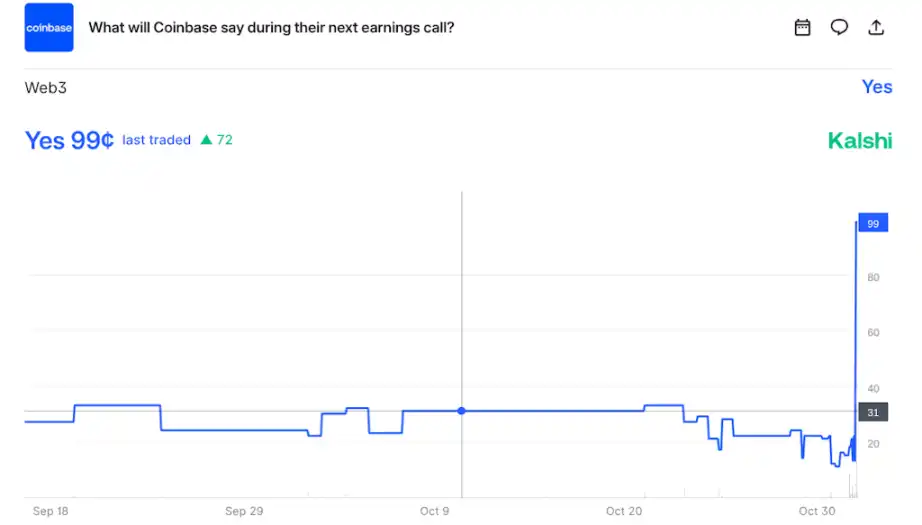Soros Predicts AI Bubble: We Live in a Self-Validating Market
When the Market Starts to “Talk”: A Financial Report Experiment, and a Trillion-Dollar AI Prediction.
Original Article Title: Busting the myth of efficient markets
Original Article Author: Byron Gilliam
Original Article Translation: AididiaoJP, Foresight News
How do financial markets, in turn, shape the reality they are supposed to measure?
There is a world of difference between rational 'knowing' and experiential 'understanding.' This is like reading a physics textbook versus watching "Mythbusters" blow up a water heater.
The textbook will tell you: heating water in a closed system will create hydraulic pressure due to water expansion.
You understand the theory of phase transitions from the text.
But "Mythbusters" shows you: how pressure can turn a water heater into a rocket, launching it 500 feet into the air.
You watch the video, and only then do you truly grasp what a catastrophic steam explosion looks like.
Visualization is often more impactful than narration.
Last week, Brian Armstrong gave us a live demonstration of George Soros's "reflexivity theory," an effect that would make the "Mythbusters" team proud.
During Coinbase's earnings call, after answering analysts' questions, Brian Armstrong read out an additional string of words. These were the words that market participants were betting he might say.
He concluded the call by saying: "I have been keeping an eye on the prediction markets for our earnings call. And now, I just wanted to add a few words: Bitcoin, Ethereum, Blockchain, Staking, and Web3."

In my view, this vividly illustrates how most financial markets operate, just as George Soros's theory suggests: Market prices will affect the value of the assets they are pricing.
Before becoming a billionaire hedge fund manager, Soros aspired to be a philosopher. He attributed his success to identifying a flaw in the "efficient market theory": "Market prices always distort fundamentals."
Financial markets do not simply passively reflect the fundamentals of assets as traditionally understood; they actively shape the reality they are supposed to measure.
Soros gave the example of the 1960s conglomerate craze: Investors believed that these companies could create value by acquiring small, high-quality companies, driving up their stock prices. This, in turn, allowed these conglomerates to actually acquire these companies using their inflated stock prices, thus "realizing" value.
In short, this created a "sustained and circular" feedback loop: Participants' ideas influenced the events they were betting on, and these events, in turn, influenced their ideas.
Fast forward to today, Soros might give the example of a company like MicroStrategy. Its CEO, Michael Saylor, is pitching to investors exactly this circular logic: You should value MicroStrategy's stock at a premium to its net asset value because the very act of trading at a premium makes the stock more valuable.
In 2009, Soros wrote that he used reflexivity theory to analyze and pointed out that the root cause of the financial crisis was a fundamental misjudgment, namely, the belief that "(real estate) mortgage value is unrelated to credit availability."
The mainstream view was that banks simply overestimated the value of real estate serving as loan collateral, and investors paid too high a price for derivative products supported by these loans.
Sometimes that was indeed the case, just a simple mispricing of assets.
But Soros believed that the massive scale of the 2008 financial crisis had to be explained by a "feedback loop": Investors' high-price purchases of credit products drove up the value of the underlying collateral (real estate). "As credit becomes cheaper and more available, economic activity heats up, causing real estate values to rise."
And the rising real estate values, in turn, encouraged credit investors to pay a higher price.
In theory, credit derivative product prices such as CDOs should reflect real estate values. But in reality, they were also helping create these values.
That, at least, is the textbook explanation of Soros's theory of financial reflexivity.
But Brian Armstrong went beyond mere explanation; he demonstrated it in action, in the way of "The Rumor Terminator."
By speaking the words people were betting he would say, he proved that participants' views (predicting the market) could directly shape outcomes (what he actually said), precisely the meaning of Soros's statement that "market prices can distort fundamentals."
The current AI bubble is a trillion-dollar upgrade to Brian Armstrong's experiment, allowing us to grasp this lesson in real-time: People believe AGI will be achieved, so they invest in OpenAI, NVIDIA, data centers, and so on. These investments make AGI more likely to come true, which in turn attracts more investment in OpenAI...
This perfectly captures Soros's famous insight on bubbles: He would enter the market because his buying would drive up prices, and higher prices would improve fundamentals, attracting even more buyers.
However, Soros would also caution investors against believing in this self-fulfilling prophecy. In the extreme case of a bubble, the speed at which investors drive up prices far exceeds the speed at which prices can improve fundamentals.
Reflecting on the financial crisis, Soros wrote: "A complete reflexive process, initially self-reinforcing, must eventually reach a peak or turning point, after which it becomes self-reinforcing in the opposite direction."
In other words, trees don't grow to the sky, and bubbles don't last forever.
Unfortunately, there is no "MythBusters" type of experiment that can demonstrate this in real life.
But at least now we know that market prices can make things happen, just like a few words spoken on an earnings call.
So, why wouldn't AGI (Artificial General Intelligence) do the same?
Disclaimer: The content of this article solely reflects the author's opinion and does not represent the platform in any capacity. This article is not intended to serve as a reference for making investment decisions.
You may also like
IIIN Q4 In-Depth Analysis: Robust Demand Faces Supply Challenges and Rising Expenses
Regret Missing PEPE and BONK? Is APEMARS the Next 100x Meme Coin Investors Won’t Ignore?
Best Meme Coins 2026: Apeing Leads the Pack as PEPE Jumps 12% on RSI Surge and Bonk Gains Traction

Aptos Unconfirmed $1M Daily Revenue Record Amid Futures Launch
